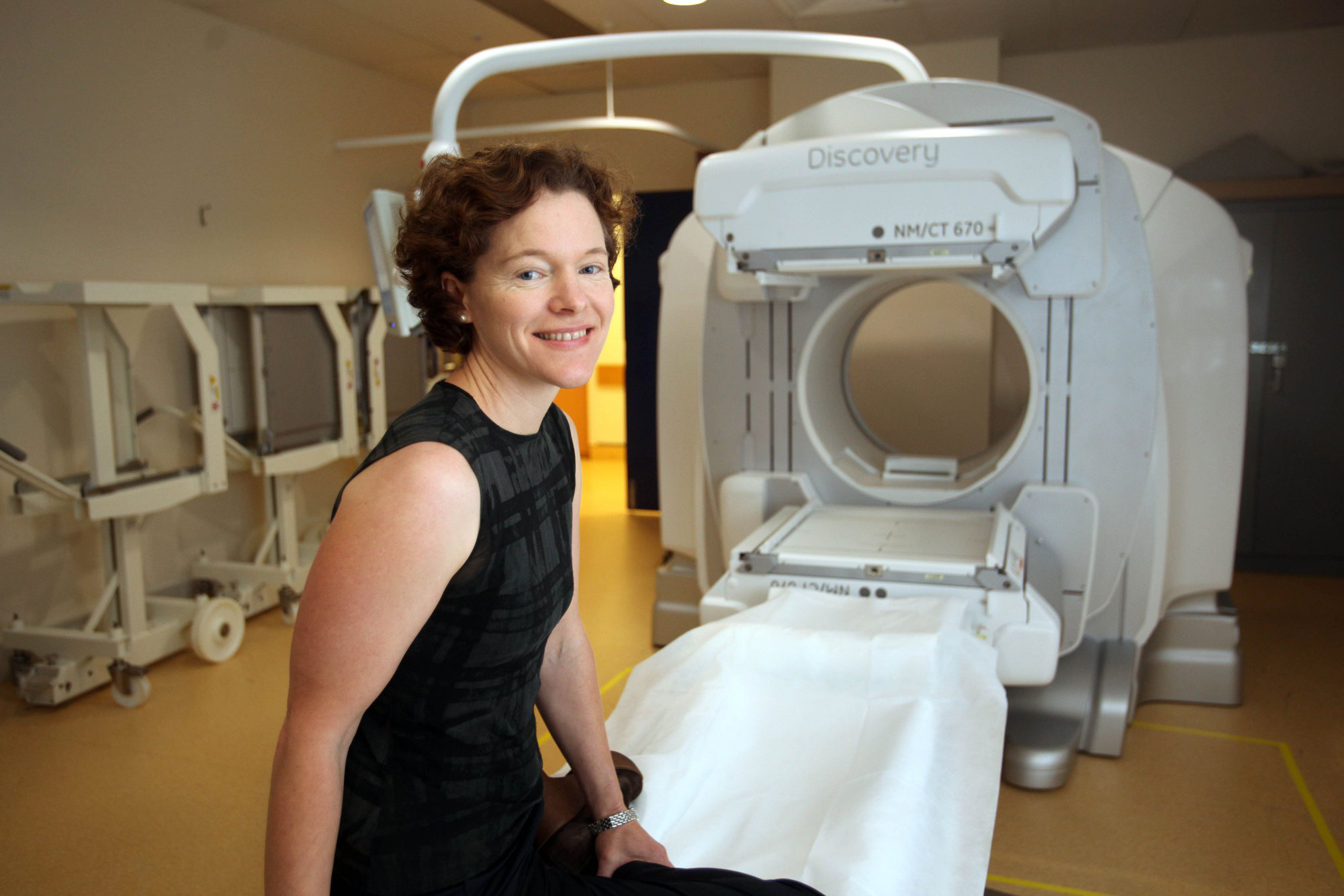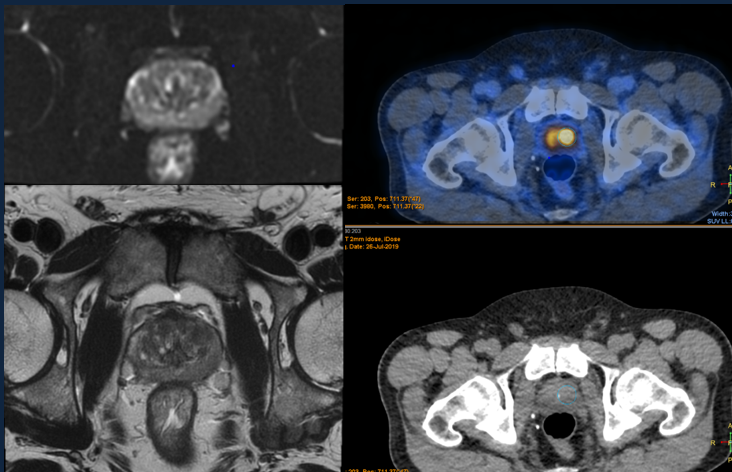How we bolster prostate cancer research
 This month, Movember has been on everybody’s (upper) lips. With awareness around prostate cancer growing as steadily as moustaches, research projects for new treatment and improved diagnosis are gaining momentum.
This month, Movember has been on everybody’s (upper) lips. With awareness around prostate cancer growing as steadily as moustaches, research projects for new treatment and improved diagnosis are gaining momentum.
This year, the St Vincent’s Clinic Foundation has supported prostate cancer research by committing more than $400,000 of funding over 3 years. These funds have been instrumental in helping A/Prof Louise Emmett and her team run two large medical trials that are set to be practice-changing.
Revolutionise the diagnostic pathway
The first study aims to change the way prostate cancer is diagnosed. When detected early, prostate cancer survival rates are better than 98% - but when detected late, those survival rates drop below 26%*.
That makes diagnosis essential, to say the least – yet its pathway currently involves a biopsy, which is invasive, painful and can lead to life-threating infections. What’s more, prostate biopsy can miss up to 20% of aggressive cancers.
With this multisite study, A/Prof Louise Emmett aims to reduce, and potentially replace, the need for biopsy in the diagnosis of prostate cancer.
How? With a new type of scan called PSMA-PET imaging. This scan targets prostate cancer cells (Prostate Specific Membrane Antigens or PSMA), which will appear as bright spots on the imaging, allowing for more accurate detection of early cancer. Associated with another type of imaging called mpMRI (multi-parametric magnetic resonance imaging) scan, a PSMA-PET scan is particularly good at identifying ‘’high-risk’’ cancer type, which requires to be removed, and differentiate it from a benign abnormality.
A/Prof Emmett and her team have started to investigate the performance and accuracy of these two tests combined, and whether they could replace biopsy for diagnosis. They have already tested this combination with 65 patients, and it will be tested on another 500 patients. Early results are very promising, and should they be conclusive by the end of the trial, men will be able to get tested through a pain-free, more accurate diagnosis process.

| Example of MRI (black and white) and PSMA PET scan (coloured) for primary trial. While the MRI showed no evidence of cancer, the PSMA PET scan showed intense uptake in the right prostate, and biopsy confirmed a significant cancer. |
Game-changing treatment
The second study is designed to test a new treatment that could prolong the lives of men with advanced prostate cancer.
As chances of survival drop dramatically when the disease is detected late, researchers like A/Prof Louise Emmett are working hard on finding innovative ways to better treat the disease when it’s already progressed.
The St Vincent’s Clinic Foundation has provided A/Prof Emmett and her team with seed-funding that enabled them to get a $5 million grant, awarded by Movember and PCRA (Prostate Cancer Research Alliance). This grant has allowed them to start working on a randomized trial, together with ANZUP and Movember, which looks at combination treatment in men with advanced prostate cancer.
One of the current treatments for men with metastatic prostate cancer is enzalutamide, a hormone therapy drug. Unfortunately, this treatment alone usually fails when the cancer has reached this stage.
The research team will investigate whether combining enzalutamide with Lutetium PSMA, a radioactive molecule that is purpose made to kill prostate cancer cells, will extend the lives of men with this type of cancer. The study is about to start with 160 patients. It will involve a staggering 900 PSMA-PET scans, making it the first major prospective study in metastatic prostate cancer using this technology. This massive amount of scans will allow the team to identify the most likely response to a treatment (called predictive biomarker) and the expected outcome for the patient (prognostic biomarker).
We are very proud to support these two medical studies, and we look forward to see how they will better the lives of men with prostate cancer. You can help ensure vital research continues to improve patient care by donating to our Foundation.
*Source: Movember